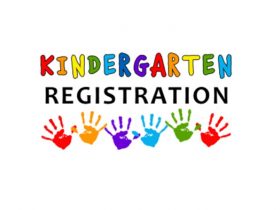One can’t just wake up one fine day and decide to be a caregiver!
Even if your intentions are pure, caregiving isn’t everyone’s cup of tea. To help and care for others in Washington, you must possess the right skills and adequate knowledge to survive in challenging conditions and assist others in living their lives better. As such, caregiver training in Renton, WA, is a must.
This will help you understand your patients and create a safe and supportive environment. If you are planning to be a home caregiver or hire one, here are six of the essential types of training you must undergo.
- First Aid
Accidents happen, and home caregivers should know what they are supposed to do in case of a medical emergency. They must be trained in giving a person first aid as per their conditions. Learning how to treat common injuries such as sprains, cuts, and scrapes is a must.
- Housekeeping Training
Housekeeping training is often ignored, thinking of it as inherently present. However, sometimes, clients use washing machines or dishwashers that are complicated or conventional. It is important that caregivers understand how to navigate new devices and appliances.
It is crucial to ensure that the home caregiver knows how to create a safe environment. For instance, bathrooms are particularly dangerous places for seniors, so they should know how to inspect and set up equipment like shower chairs, grab bars, and tub mats.
At institutes for caregiver training in Renton, WA, home caregivers are trained appropriately in all such aspects.
- Maintaining Patient Hygiene
A home caregiver is responsible for maintaining the patient’s cleanliness and hygiene. They need to identify signs that show patients need help while still respecting their privacy.
Caring for nails, teeth, and hair are all tasks that home caregivers must be able to handle. In some cases, they also could be required to bathe or feed their patient.
- Awareness of Different Types of Equipment
When home caregivers are trained, they should be taught about different equipment that helps in providing better patient care. This includes common ones such as walkers, wheelchairs, and canes, and more specialized ones like hospital beds and gait belts.
They should also know how to lift and transfer an injured client.
- Common Medications
If a home caregiver is hired to look after a senior patient, it is essential they know about different medications and their use. Most older adults take around four medications a day, but the number may differ.
It’s appreciated if they know which medicine can possibly react with others and causes troubles for a person.
- Dementia/Alzheimer’s Training
If a person is not correctly trained, it can be difficult for them to handle patients who have Dementia or Alzheimer’s. A reputable agency will provide proper training and knowledge to help home caregivers learn all aspects of these conditions.
Understanding their progress with time, how people behave in these conditions, and how to communicate with them, ensures that you impart the proper care without any struggle.
Training is often the difference between an average home caregiver and a great one. Well-trained professionals in the field are capable enough to handle surprising and challenging situations that can arise in the course of their work.
Plus, the clients feel secure that a competent and trained person is caring for their loved ones. So, enroll yourself to be trained by professionals if you see yourself as a future home caregiver.







